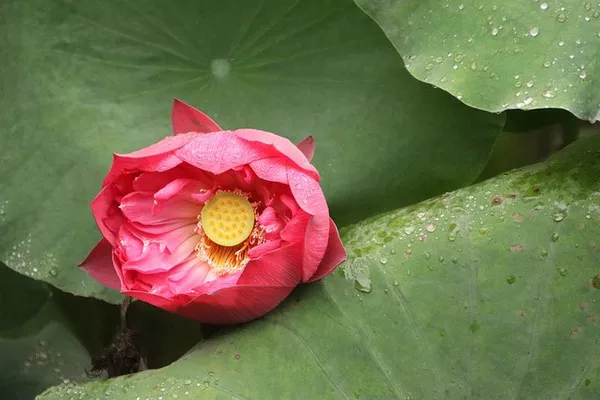The world of gastronomy has always been a realm of constant exploration and innovation, with chefs and food enthusiasts alike searching for unique and exotic ingredients to tantalize our taste buds. One such intriguing ingredient is the lotus flower, renowned for its beauty, symbolism, and cultural significance in many parts of the world. But can you eat lotus flowers, and if so, what culinary possibilities do they hold? In this article, we will delve into the world of lotus flowers, exploring their edibility, culinary uses, and the cultural significance that has made them a sought-after delicacy.
The Lotus Flower: A Symbol of Purity and Enlightenment
Before we dive into the culinary potential of lotus flowers, it is essential to appreciate the cultural significance that surrounds this elegant aquatic plant. The lotus flower holds profound symbolism in various cultures and religions, including Buddhism and Hinduism. It is often associated with purity, enlightenment, and rebirth, as it rises gracefully from muddy waters to bloom in pristine beauty.
The Edibility of Lotus Flowers
Lotus flowers, in their entirety, are indeed edible, and they offer a unique taste and texture profile. While different parts of the lotus plant, including the leaves, seeds, and rhizomes, have culinary uses, the flowers are particularly notable for their aesthetic appeal and subtle flavor.
The petals of the lotus flower are the most commonly consumed part. They have a mild, slightly sweet flavor with a hint of bitterness, making them an ideal addition to various dishes. The stamen and pistil, found at the center of the flower, are usually removed before consumption as they can have a slightly bitter taste. The petals, on the other hand, are tender and can be used in both savory and sweet dishes.
Culinary Uses of Lotus Flowers
Lotus Flower Salad: Lotus flower petals can be used in salads to add a fresh and delicate crunch. They pair well with other greens, herbs, and ingredients like cucumber, jicama, and mint. A light vinaigrette or citrus dressing complements their mild flavor beautifully.
Tempura Lotus Flowers: Lotus flowers can be coated in a light tempura batter and deep-fried to create a delightful and crispy appetizer. The contrast between the crunchy exterior and the tender interior of the petals is a culinary experience worth savoring.
Stuffed Lotus Flowers: The lotus petals can be stuffed with various fillings, such as seasoned ground meat, rice, or vegetables, before being steamed or baked. This preparation style allows for creative experimentation with flavors and textures.
Lotus Flower Tea: The petals of the lotus flower can be used to infuse herbal teas, contributing a subtle sweetness and fragrance. Lotus flower tea is known for its calming properties and is often enjoyed for its soothing effects.
Desserts: Lotus petals can be candied or used as an edible garnish for desserts, such as cakes, puddings, and fruit salads. Their gentle flavor and elegant appearance make them an excellent addition to a wide range of sweet treats.
Lotus Flower Essence: Lotus flowers can be used to make an essence or extract that adds a unique floral note to cocktails and culinary creations. This essence is a favorite among mixologists and chefs for adding a touch of elegance to their creations.
Cultural Significance of Lotus Flowers in Cuisine
Beyond their taste and texture, the use of lotus flowers in cuisine is deeply rooted in cultural traditions and rituals. In Asian cultures, lotus flowers are revered for their symbolism and have been used in various rituals and ceremonies. The significance of the lotus in these cultures extends to the culinary sphere, where its use can be both a matter of tradition and artistic expression.
In Chinese cuisine, lotus flowers symbolize purity and perfection. They are often used in celebratory dishes, especially during weddings and other special occasions. Lotus flower dishes are believed to bring good luck and positive energy to those who partake in them.
In Indian cuisine, the lotus flower holds a special place, with its association to deities and the concept of enlightenment. Lotus petals are used in various dishes, both savory and sweet, as offerings to gods or as a sign of devotion.
In Southeast Asian countries like Vietnam and Thailand, lotus flowers are a common ingredient in salads, soups, and stir-fries. These dishes reflect the rich cultural heritage of the region and the reverence for the lotus flower’s symbolism.
Health Benefits of Eating Lotus Flowers
Apart from their culinary appeal and cultural significance, lotus flowers also offer potential health benefits. They are a good source of dietary fiber and contain essential vitamins and minerals. Some of the potential health benefits of consuming lotus flowers include:
Antioxidant Properties: Lotus flowers are rich in antioxidants, which can help protect the body from oxidative stress and reduce the risk of chronic diseases.
Digestive Health: The dietary fiber in lotus flowers can aid in digestion and promote a healthy gut.
Stress Reduction: Lotus flower tea is known for its calming properties, which can help reduce stress and promote relaxation.
Anti-Inflammatory Effects: Some compounds in lotus flowers may have anti-inflammatory properties, which could benefit those with inflammatory conditions.
Weight Management: The fiber in lotus flowers can contribute to a feeling of fullness, which may help with weight management and appetite control.
Conclusion
The culinary world constantly evolves as chefs and food enthusiasts seek new and unique ingredients to enhance their dishes. The lotus flower, with its symbolism, cultural significance, and delightful culinary potential, is an example of such an ingredient. Whether enjoyed in a salad, as a crispy tempura, or infused into a soothing tea, the lotus flower offers a truly unique culinary experience. Its subtle flavor, delicate texture, and cultural richness make it a prized addition to the world of gastronomy. So, yes, you can eat lotus flowers, and you may find their edible beauty and cultural significance an intriguing and delightful addition to your culinary repertoire.


